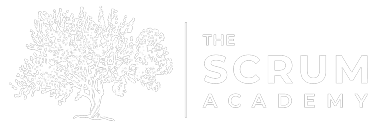The Retrospective Prime Directive Is Kinda Silly
I am not a huge fan of the Retrospective Prime Directive since I find it to be fairly empty and lacks authenticity. For those of you unfamiliar with the Retrospective Prime Directive, take a look at the text below, and form your own opinions.
“Regardless of what we discover, we understand and truly believe that everyone did the best job they could, given what they knew at the time, their skills and abilities, the resources available and the situation at hand.”
If you and your Team are getting great benefit from this words, then by all means, please continue to read this statement aloud at your next Retrospective. There is certainly nothing wrong with this statement. However, if you find that Retrospective Prime Directive does not match your reality, then feel free to discard it.
The Retrospective Prime Directive was created by Norm Kerth in the 1990’s when Retrospectives were not that common in the software industry. It was first published in Norm Kerth’s 2001 book, Project Retrospectives: A Handbook for Team Reviews (which I highly recommend reading). The idea was that the Retrospective facilitator would read this statement aloud before the start of the Retrospective activities outlined in the book as a way to create safety for the participants.
Recently, my friend and colleague Tobias Mayer re-posted his restating of the Retrospective Prime Directive on LinkedIn. In his recent post, Tobias discusses what he calls the Secondary Indirective.
“We are emotional and vulnerable beings, subject to a continuous flow of influences from a myriad of sources. Sometimes we perform magnificently, other times we mess up. Mostly we are somewhere between these extremes. In this last period of work everyone did what they did, and likely had reasons for doing so. Accept what is. And now, what can we learn from our past actions and thinking that will inform and guide our future ones?”
For me, Tobias’s Secondary Indirective has a more authentic voice. This statement identifies that as human beings, we work from a set of complex, contradictory motivations. Sometimes we act altruistically and with the greater good in mind. Other times we act for selfish reasons to advance our own goals. We do not always do our best. Does this make us bad people? No, it just makes us human.

